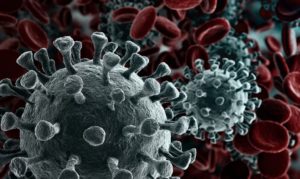
On Friday, an official at Honved Hospital in Budapest confirmed in a telephone interview that it had begun administering the vaccine.
Cecilia Muller, Hungary’s chief medical officer and head of the government’s coronavirus task force, had called on 560 general practitioners in Budapest on Tuesday to find five people each to receive the Sputnik V vaccine. The initial 2,800 doses available are what remain from a 6,000-dose batch that arrived for testing in December.
The government said it would receive two million doses of Sputnik V from Russia over the next three months. Hungary had said in November that it was in talks with the Russian manufacturer about importing, and even manufacturing, the Sputnik V vaccine.
Prime Minister Viktor Orban has cited Serbia, which has a sizable ethnic Hungarian population, as an example of a country whose vaccination strategy includes the Russian Sputnik and Chinese Sinopharm vaccines.
In a report this month in the respected British medical journal The Lancet, late-stage trial results showed that the Sputnik V vaccine was safe and highly effective. The Sinopharm vaccine has been approved for use in China, Bahrain and the United Arab Emirates, but the company has yet to publish detailed results of its Phase 3 trial.
The Hungarian government’s approach to vaccine procurement and approval has raised alarm in the country’s medical community.
Last month, its Chamber of Physicians released a statement calling on the government and regulators to approve vaccines only after transparently following drug safety rules and testing in accordance with European Medicines Agency standards. They cited a need to strengthen the public’s confidence in vaccines and to ensure that doctors can administer the inoculations “in good conscience.”
Dr. Ferenc Falus, Hungary’s former chief medical officer, said Mr. Orban’s push to acquire vaccines from as many sources as possible raised serious concern.
“The responsibility of the National Center for Public Health in this respect is huge,” Dr. Falus said, “especially concerning how they are evaluating the batches that have arrived in Hungary. We simply do not know the origins of these batches.”
He noted that the emergence of new virus variants complicates matters further. The variant that was first detected in Britain has surfaced in Hungary, Hungarian officials said.




